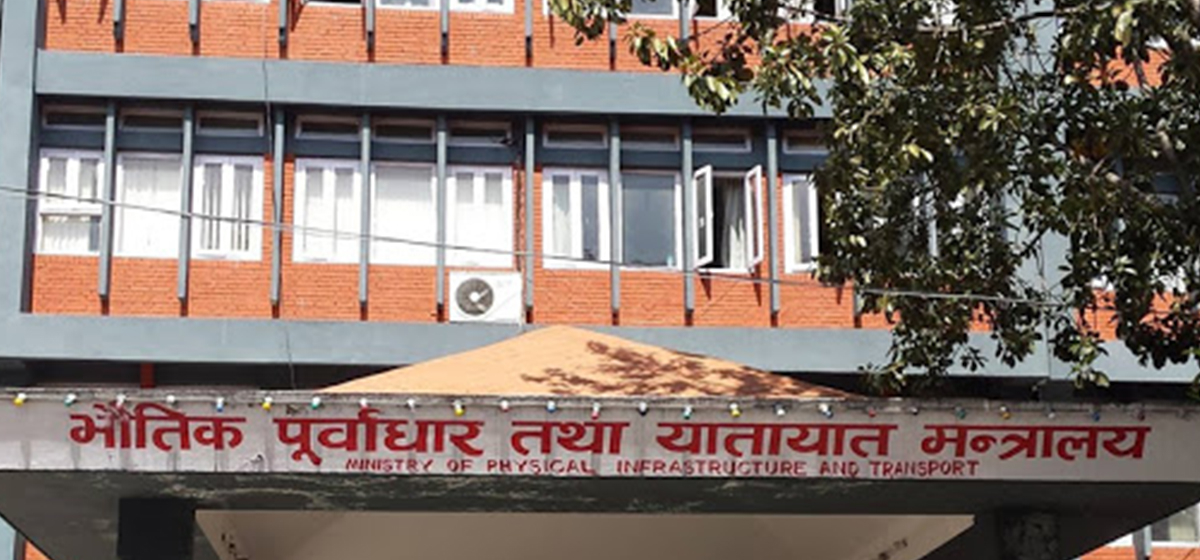
OR
Live-in relationship 'victims' lament lack of law
Published On: February 25, 2017 05:45 AM NPT By: Pooja Chauhan
KATHMANDU, Feb 25: 'Sometimes a rash decision is enough to make you cry your whole life'. That is the deeper understanding of life by thirty four years old Anita Gurung [name changed] who realized that life is not always as beautiful as in the movies when her own love of 16 years ultimately refused to marry her in spite of having two kids.
In 2001, Anita had come to Kathmandu for her higher studies. She started falling for her classmate Binod Gurung [name changed]. She was on cloud nine when she found out that her crush felt the same way for her.
It was not convenient to get married right then. Unable to live apart, the couple mutually decided to live together as husband and wife in the same apartment. Life was rocking till 2009 by when the couple had a son and a daughter.
In 2011, Binod went abroad in search of a job. He used to visit Anita and kids from time to time. However, things began to sour soon, as Anita could gradually feel that he had changed.
He started mistreating her and like thousands of other women in Nepal she became a victim of domestic violence. But she had no shoulder to lean on and cry as she was staying with a man who was not her husband.
In 2016, helpless Anita finally knocked at the court doors. She filed a case at the Kathmandu District Court against Binod, seeking to establish their marital relationship and demanding birth registration of her children under the Children's Act 1992. Although the court tried to reconcile their issue but Binod denied the accusations and gave a silly reason that he could not marry her as he has no time.
Anita's case is among 447 such cases registered at the Kathmandu District Court in the current fiscal year, seeking certification of kinship. Last fiscal year, there were 818 such cases. According to district court officials, almost all of such cases are filed by women.
Live-in relationships in Nepal are on the rise these days, especially in cities like Kathmandu and Pokhara. Mostly students from low family backgrounds, who come from the rural areas for higher studies, are found living together with their partners which also cuts down their living expenses.
According to Jiwan Prasad Rijal, executive director of the National Forensic Science Laboratory, the rise in live-in relationships is also an imitation of the western world. He states that he has witnessed cases of live-in relationships where the male partners abandon the child giving various reasons to escape. As a result women come for DNA testing of their child to prove their partners that it's their child. “We don't permit their request as it might lead to abortion and we can't register the case unless the court orders as there are no law for cohabitation,” he added.
Sarita Thapa [name changed] has been living together with her partner for the past three years. She says her partner is a heavy drinker who keeps beating and torturing her for money as he doesn't have a job. Sarita, who is a receptionist, earns Rs 10,000 a month but she can't spend a penny on herself. With eyes full of tears, she says she even caught him with other women in the past but still agreed to stay after his apologies hoping that he will change but he didn't. “I was trapped in his so-called love which actually never existed and now I have been a commodity to satisfy his sexual and financial needs,” Sarita lamented. She informed Republica that she tried to go back to her family but they discarded her blaming her for spoiling their 'social standing'. “My life has become like hell and people look down upon me for my relationship.”
There are many women like Anita and Sarita who are being physically, mentally and sexually exploited by their partners. “Pre-marital sex is a crime in our society and one who does it will have to live like a criminal, hidden,” said Sita Sharma Adhikari, under secretary at the National Women Commission. According to her, very few women dare to come out of their shells and demand action against their partners but most keep suffering silently due to the social stigma.
Shailesh Adhikari, a non-gazetted officer at the district court said, “Sometimes women themselves are responsible for their situations, as out of empathy, they keep doing everything that their partners demand even after knowing their ill intents.” According to him, some woman are so vulnerable and fragile that they cannot imagine their life beyond their partners and keep staying in the abusive relationships.
You May Like This

Cash fine of up to Rs 200,000 proposed for misconduct by online business operators
KATHMANDU, Jan 3: The government has sought to fine up to Rs 200,000 those traders who carry out online business... Read More...

Danuwar earthquake victims lack economic resources for rebuilding houses
DHULIKHEL, Dec 26: Most of the houses at the Danuwar settlement at Baluwa, Paanchkhal Municipality-12 in Kavrepalanchok district have cracks... Read More...

Kathmandu School of Law wins 58th Jessup International Law Moot Court Competition
KATHMANDU, March 7: Kathmandu School of Law won the national round of the 58th Philip C. Jessup international Law Moot Court... Read More...
Just In
- Over 16,000 paragliding flights conducted in one year in Pokhara
- MoPIT prepares draft of National Road Safety Act, proposes rescue within an hour of an accident
- Light rainfall likely in hilly areas of Koshi, Bagmati, Gandaki and Karnali provinces
- Customs revenue collection surpasses target at Tatopani border, Falls behind at Rasuwagadhi border in Q3
- Rain shocks: On the monsoon in 2024
- Govt receives 1,658 proposals for startup loans; Minimum of 50 points required for eligibility
- Unified Socialist leader Sodari appointed Sudurpaschim CM
- One Nepali dies in UAE flood


















Leave A Comment